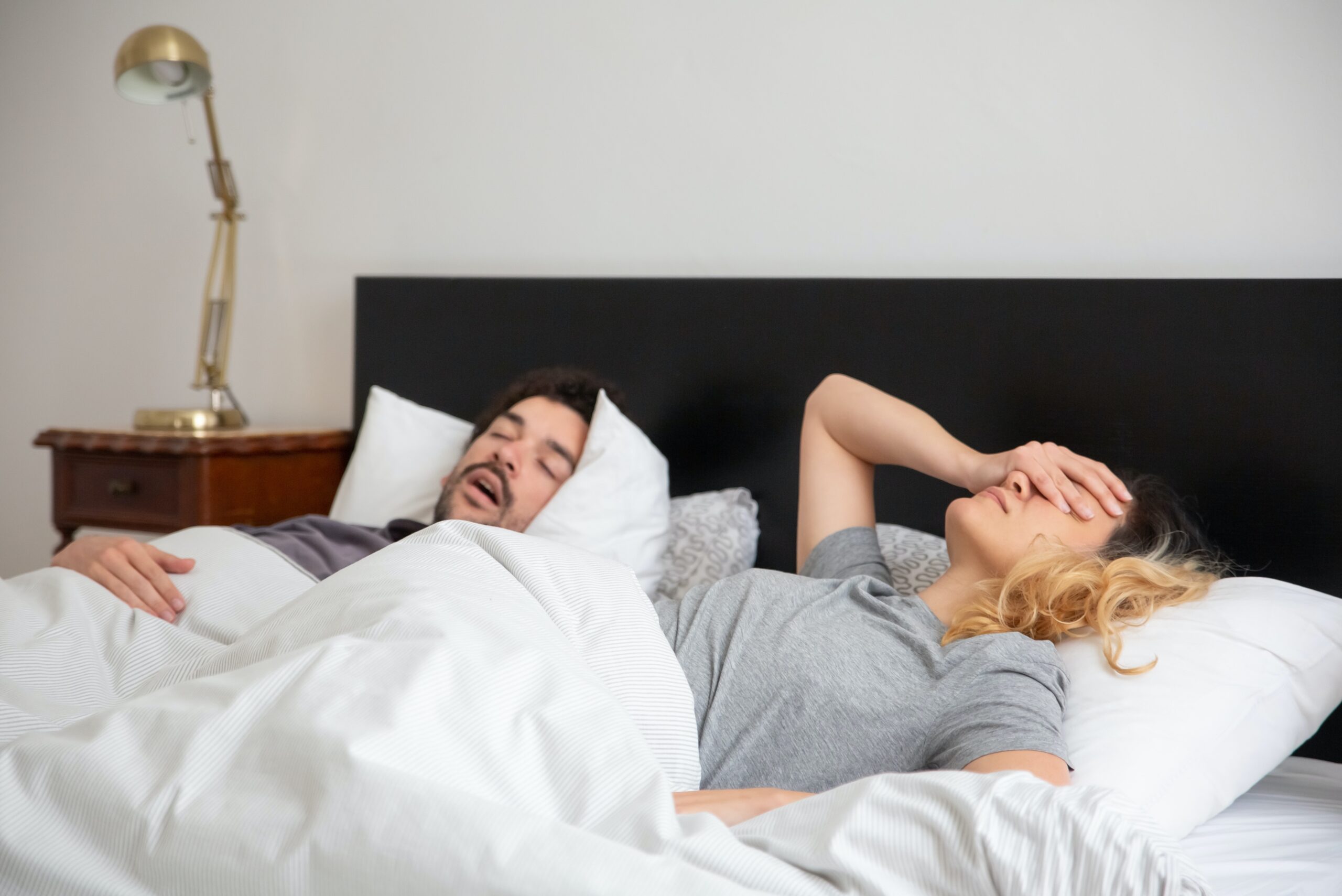
Snoring and sleep apnea are common sleep disorders that can have a significant impact on your quality of sleep and overall health. While it’s always best to consult a healthcare professional for personalized advice, here are some general tips that may help in preventing snoring and sleep apnea:
- Maintain a healthy weight: Excess weight, especially around the neck and throat area, can contribute to snoring and sleep apnea. Engage in regular physical activity and maintain a balanced diet to achieve and maintain a healthy weight.
- Sleep on your side: Sleeping on your back can cause the tongue and soft tissues in your throat to relax and obstruct your airway, leading to snoring and sleep apnea. Try sleeping on your side to keep the airway open. You can use pillows or positional aids to encourage side sleeping.
- Elevate your head: Sleeping with your head slightly elevated can help prevent snoring. You can use a wedge pillow or raise the head of your bed by a few inches.
- Avoid alcohol and sedatives: Alcohol and sedatives can relax the muscles in your throat, increasing the likelihood of snoring and obstructed breathing. Avoid consuming these substances close to bedtime.
- Establish a regular sleep schedule: Getting adequate sleep on a consistent schedule can help improve your overall sleep quality and reduce the risk of sleep apnea.
- Maintain good sleep hygiene: Practice good sleep habits, such as creating a comfortable sleep environment, avoiding electronic devices before bed, and following a relaxing bedtime routine.
- Manage allergies and nasal congestion: Allergies, nasal congestion, and sinus problems can contribute to snoring. Treat any underlying allergies or congestion issues to improve your nasal airflow.
- Quit smoking: Smoking can cause inflammation and irritation of the airways, contributing to snoring and sleep apnea. Quitting smoking can improve your overall respiratory health.
- Consider oral appliances: Depending on the cause of your snoring or sleep apnea, your healthcare provider may recommend oral appliances that help keep your airway open during sleep. These devices are custom-made and should be used under professional guidance.
- Seek medical evaluation: If your snoring or sleep apnea persists despite lifestyle modifications, it is important to consult a healthcare professional. They can provide a proper diagnosis and recommend further treatment options, such as continuous positive airway pressure (CPAP) therapy or surgery if necessary.
Remember, these tips are general guidelines, and it’s important to consult a healthcare professional for a personalized evaluation and treatment plan based on your specific condition.
See More on Video

The Stop Snoring And Sleep Apnea Program by Christian Goodman The Stop Snoring and Sleep Apnea Program is a well-researched program created to help stop snoring and sleep apnea so that you can have a good night sleep. The techniques that you will learn from this program works immediately.